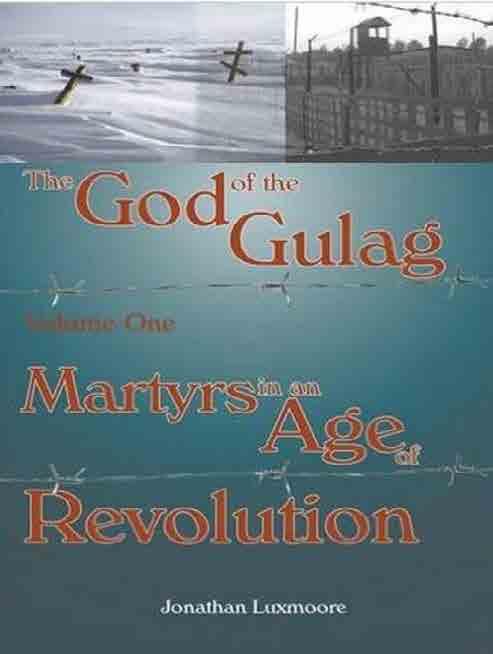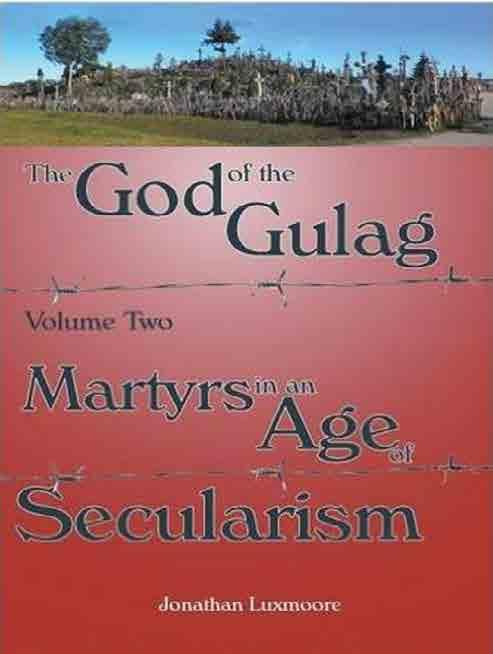
7 minute read
Poland's Catholic Church Takes on its Critics
By Jonathan Luxmoore
Krakow, Poland - On the edge of this city of 760,000, Poland's second largest, an ornate basilica rises across a sweeping hillside, shaped like a boat with a 240-foot viewing tower for its mast.
In the distance, chapels and walkways punctuate the undulating landscape, while to the north the view broadens out over the gables and steeples of Krakow, a city boasting more churches per square mile than either Rome or Jerusalem.
When the shimmering white complex was completed in 2002, it became the world centre of the Divine Mercy movement, long nurtured by Krakow's most famous son, Pope St John Paul II. Equipped with relics of St Faustina Kowalska (1905-1938), the cult's founder, it vividly symbolised the influence of Poland's Catholic Church in the years since fall of communism.
Today, that influence is being challenged increasingly, as a controversial nationalist government courts Church support in the face of threatened Western sanctions, against a background of falling vocations and Mass attendance.
When the Polish Church's Statistics Office published data earlier this year, Sunday participation had dropped by three percentage points in just a year, with a third of Poles now coming regularly, compared to more than half two decades ago.
Admissions to Poland's 83 Catholic seminaries are dwindling as well, along with vocations to its 104 female religious congregations, raising fears of a future clergy shortage.
Inevitably, some have linked the decline to weak leadership by the country's Catholic bishops, who've been accused of being too close to the current government, led by Jaroslaw Kaczynski's Law and Justice party (PiS).

Others vigorously reject this, and pin the blame instead on the secularising pressures at work in Poland as in other liberal democracies.
The Polish Church has faced criticism on other counts as well, notably over its apparent prevarication towards new the pastoral approaches favoured by Pope Francis, and its reluctance to accept migrants and refugees from the Middle East.
But it has been its ties with the PiS government which have provoked most controversy.
Since its election landslide in October 2015, PiS has been under attack for making changes to Poland's judicial system and state media, which critics say will undermine democracy and legality by centralising power and restricting free speech.
Government supporters insist the replacement of judges and media directors was needed to ensure greater accountability. However, the reform package has sparked protests from the opposition Civic Platform and sanction threats from the European Union, where Kaczynski's former arch-rival, Donald Tusk, is President of the intergovernmental European Council.
In November 2017, the EU's Parliament invoked Article 7 of a 2007 Treaty on European Union and demanded Poland's suspension from decision-making unless it cancelled the reforms.
PiS's backers insist the dispute has been blown out of all proportion by Poland's pro-opposition media, as well as by European politicians pushing their own agendas.

Zdzislaw Krasnodebski, a PiS member, now Vice-President of the European Parliament, says previous Polish governments have made parallel reforms without provoking controversy. The PiS government's international critics should take greater note of its tough pro-Western stance on defence and security, as well as the long-delayed economic and social improvements now underway under President Andrzej Dudek and Premier Mateusz Morawiecki.
"A good opposition should criticise government - but it should also challenge fake news about its own country," Professor Krasnodebski argues. "Instead, this absurd, alarmist picture has been allowed to emerge that rights and freedoms are being violated. In reality, there's no difference between Poland, Germany and other Western countries.”
The MEP blames the Civic Platform for refusing to accept its 2015 defeat. He predicts the EU's sanctions threat will founder as Hungary, Austria and other countries oppose intervention - against a government which, for all the threats and criticisms, still leads in opinion polls.
As for the Church, Krasnodebski dismisses claims about its close ties with PiS as another "media confabulation". In reality, Poland's bishops have kept a careful distance from Kaczynski's party, knowing public opinion won't tolerate a politicised Church.
On several occasions, the bishops have harshly criticised the PiS government. In September 2017, when PiS leaders backed calls for new war reparations from Germany, Church leaders warned against their "thoughtless decisions and rashly spoken words".
And when the Israeli Government and Jewish organisations condemned a new PiS-backed law in late January, criminalising claims about Polish complicity in the Holocaust, most bishops maintained a studied silence - condemning a wave of anti-Semitism touched off by the dispute, and later welcoming the government's June decision to modify the law.
Professor Jan Zaryn, a Polish senator and top historian, agrees most bishops will naturally prefer PiS to other parties, given its supportive attitude to the Church.
In its resolution last November, the European Parliament also threatened action if Polish MPs voted for a bill to curb abortions on handicapped foetuses - an initiative backed by 830,000 people in a petition to the Polish parliament. That PiS has vowed to resist such interference and will clearly win the bishops' favour, Zaryn concedes. But they'd favour other parties equally if they similarly defended Poland's Christian heritage.
"The Church doesn't have a duty of loyalty to any political force - and there are certainly contrasting political sympathies and antipathies within the Bishops’ Conference", the historian says. "But while the impression remains that EU officials are trying to steer developments in Poland and muzzle Catholic views, it's obvious there'll be areas of agreement."
The Polish Church's image hasn't been helped by its sometimes over-emotional language.
In late June alone, one bishop, Stanislaw Stefanek, told Catholics at the Jasna Gora national sanctuary that Europe's democratic system was being maintained by "intrigues and infidelities... judicial crimes and lying parliamentary findings".
Meanwhile, the Bishops’ Conference President, Archbishop Stanislaw Gadecki of Poznan, celebrated the 1050th anniversary of Poland's first Christian see by accusing Europe of succumbing to "flabby totalitarianism" and a "dictatorship of materialism".
Communism and consumer society shared the same materialist aims, Archbishop Gadecki added - to manipulate human beings by a "powerful bureaucratic and media system, and a language modified by propaganda". If Europe's system of parliamentary democracy no longer relied on violence, it still sought, like communism, to "deprive the person of identity and responsibility".
Malgorzata Glabisz-Pniewska, a senior Catholic presenter with Polish Radio, nevertheless believes pluralism has now taken root in the Church, ruling out a uniformity of views.
While all Polish bishops are united around key issues such as abortion, euthanasia and faith in the public sphere, she says, some are ready to acknowledge and confront current problems firmly and openly.
In May, Poland's Catholic Primate, Archbishop Wojciech Polak of Gniezno, warned that some parishes risked "turning into ghettos", composed of "self-satisfied people who isolate themselves from others".
Another Archbishop, Grzegorz Rys of Lodz, cautioned his Church that it risked losing support from young people unless it drastically revised its pastoral approach.
"We've turned God into a collection of notions, abstractions and definitions", the Archbishop told journalists. "We need to switch from working in mass groups and percentages to working in an individual, personal dimension. It's a lesson we must learn in the Polish Church as quickly as possible.”
In this changing environment, phrases like "the Church says" or "the Church thinks" no longer carry much meaning, Glabisz-Pniewska argues.
Last December, the Polish Bishops’ Conference launched a glossy Twitter feed to counter criticisms, while its Catholic Information Agency (KAI) ran an inventory of appeals for unity and harmony by the country's bishops.
Although this isn't likely to appease the Church's opponents, some Catholics see positive signs. More than 60 percent of Poland's 10,000 parishes now have their own internet sites, suggesting the Church is keeping up with technology. And while participation may be falling overall, the Church's data show higher numbers are now receiving sacraments.
In some dioceses, such as Tarnow in the southeast, Mass attendance still runs at two-thirds, a figure which would be the envy of the Church in other countries.
Fr Wojciech Sadlon, the Church Statistics Office director, thinks Polish Catholicism is witnessing a transition from quantity to quality, as falling numbers combine with deeper commitment.
"These figures shouldn't fuel a sense of guilt that things were better before - the Church remains itself, whatever its size and strength," Fr Sadlon told the KAI agency. "Of course, it doesn't always fulfil its apostolic mission perfectly, and often lacks evangelical witness both from priests, religious and lay faithful. But its responsibility lies in being able to spot its weaknesses and make improvements."
Those "improvements" will certainly include seeing problems and challenges in a calmer, more rational way, and moving away from rhetorical simplifications and stereotypes. But while these are still resorted to by some Polish bishops, they abound in other quarters too.
"Though certain processes are driving secularisation here, Polish Catholics are still propping up Church life in many parts of the world", says Jan Zaryn, the Polish historian. "We have to get used to knowing there's room for various tendencies and preferences in the Church, and that priests and bishops, like all citizens, have different views and ways of expressing them".
Jonathan Luxmoore covers Church news from Oxford and Warsaw. His twovolume study of communist-era martyrs, The God of the Gulag, is published by Gracewing. Vol I: Martyrs in an Age of Revolution and Vol 2: Martyrs in an Age of Secularism are available from the LMS shop, £20 each + p&p








